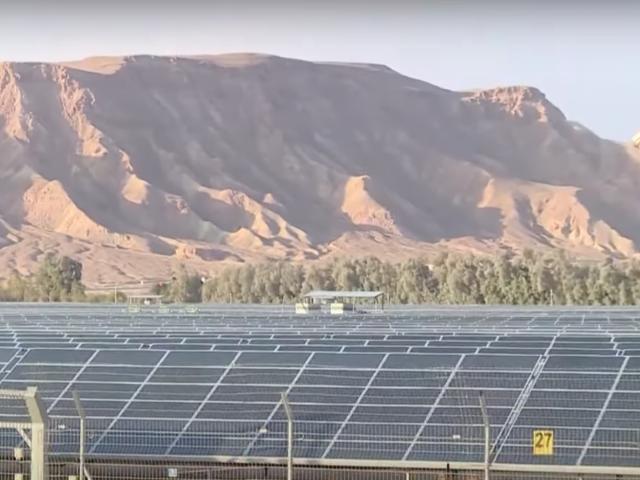In an unprecedented leap towards sustainable energy, Israel celebrated a landmark achievement on March 12, 2024, as it announced that for the first time, over half of its electricity—precisely 51%—was generated from renewable sources. This momentous occasion not only underscores the nation's dedication to environmental stewardship but also represents a significant stride in its journey towards energy independence and sustainability.
This achievement is the fruition of the Israeli Ministry of Energy and Infrastructure's concerted efforts to champion renewable energy initiatives. It signals a pivotal shift in the country's energy landscape, showcasing a commitment to not only harnessing but also significantly leveraging renewable resources to meet its energy demands. The data provided by the Israel Independent System Operator (Noga) illustrates the scale of this accomplishment: out of a total electricity output of 7,821.25 MW, renewable sources contributed 3,997.97 MW. Photovoltaic (PV) energy led the charge with an impressive 3,546.79 MW, accounting for approximately 45% of the total production. Additionally, PV-thermal (PVT) technology and wind power contributed 263.43 MW and 172.66 MW, respectively, further cementing the role of diverse renewable technologies in Israel's energy mix.
Israel hits 51% renewable production for first time: The Israeli government said that earlier this month, for several minutes, renewable energy accounted for most of the nation's energy… https://t.co/XlmMXUlFKG #CommercialIndustrialPV #EnergyManagementSystems #MarketsPolicy pic.twitter.com/tbSZ1ooYIq
— pv magazine (@pvmagazine) March 26, 2024
In stark contrast, traditional energy sources now constitute a smaller fraction of the nation's energy portfolio, with natural gas generating 3,005.48 MW (38%) and coal 799.44 MW (about 10%). This shift not only highlights Israel's progress towards reducing its carbon footprint but also its dynamic approach to energy generation, blending innovation with sustainability.
The Ministry of Energy and Infrastructure is buoyed by this achievement, viewing it as the precursor to numerous future records in renewable energy production. The optimism is well-founded, given the impressive growth in Israel's renewable energy capacity, which saw an increase from 4,795 MW at the end of the previous year to 5,903 MW by the end of 2023. Consequently, renewable energy's contribution to the nation's electricity demand rose from 10.1% in 2022 to 12.5% last year.
Furthermore, this milestone coincides with the Israeli government's transformative move to liberalize the electricity sector. For the first time since the establishment of the state, the electricity market will open to competition this summer, empowering all Israeli residents to select their electricity providers. This policy is expected to drive down electricity costs significantly, potentially saving families hundreds to thousands of Shekels annually. It represents a major overhaul aimed at fostering competition, enhancing efficiency, and ultimately reducing electricity prices by an estimated 5-20%. The initiative is spearheaded by the Minister of Energy and Infrastructure, Eli Cohen, who believes that electricity is a fundamental necessity for every Israeli household and has therefore prioritized the removal of barriers to full market competition.
The opening of the electricity sector is poised to usher in a new era of consumer empowerment and economic resilience. With the distribution of smart meters accelerating—moving the completion target from 2036 to 2028—consumers will soon enjoy the flexibility to choose their electricity providers based on price and service quality. This development is expected to facilitate better energy management, promote competition, and drive down costs, benefiting consumers and the economy at large.
Joint press release of the Ministers of #Energy of #Cyprus and #Israel 📜 https://t.co/hSwxzXmI4p pic.twitter.com/0SOXukJmnc
— Press and Information Office Cyprus (@CyprusPIO) March 28, 2024
In conclusion, Israel's landmark achievement in renewable energy production, coupled with the groundbreaking reform of its electricity sector, marks a significant milestone in the nation's journey towards a sustainable, competitive, and efficient energy future. These initiatives reflect a deep-seated commitment to innovation, environmental responsibility, and consumer welfare, setting a precedent for other nations to follow in the quest for a greener planet and a more resilient economy.


